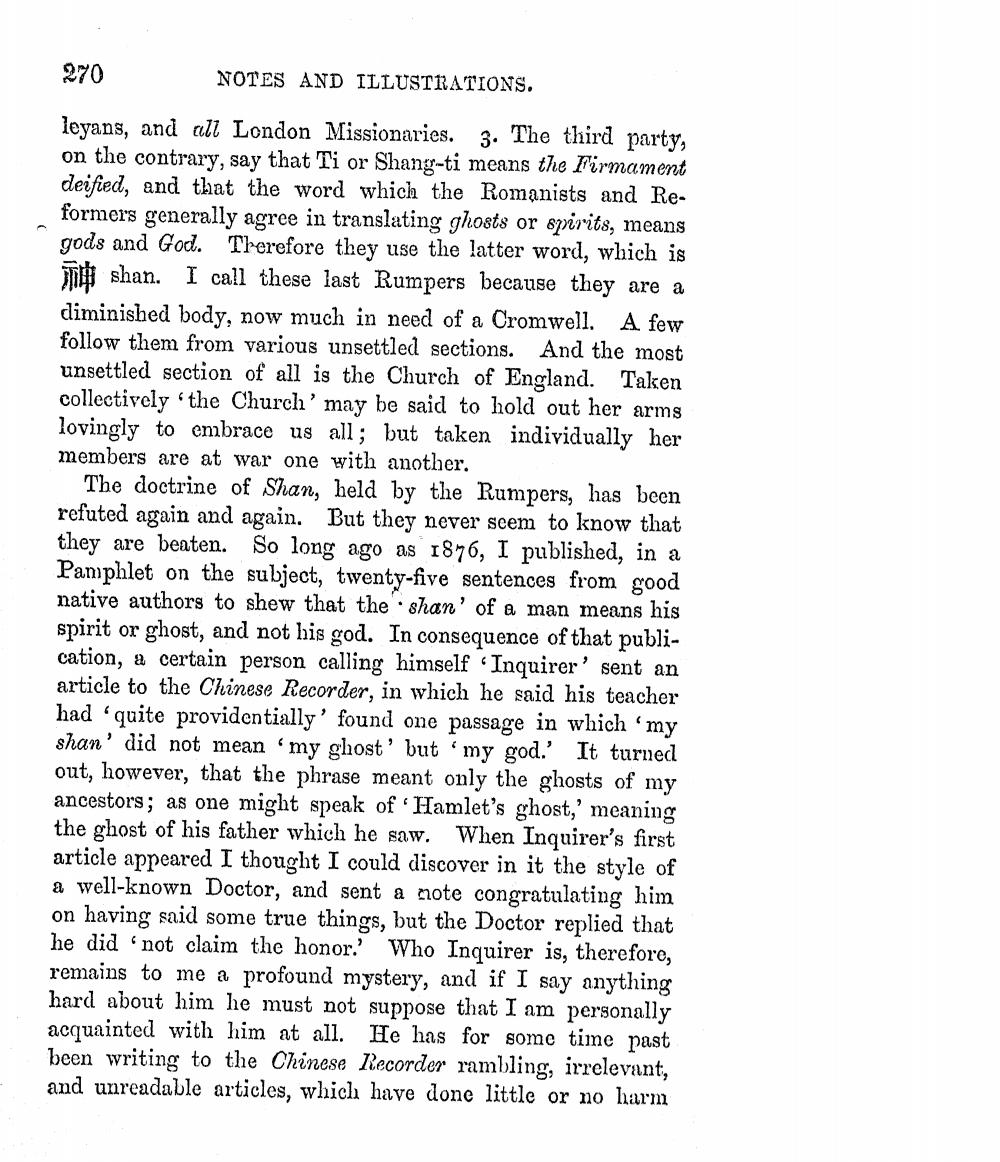________________
270
NOTES AND ILLUSTRATIONS.
leyans, and all London Missionaries. 3. The third party, on the contrary, say that Ti or Shang-ti means the firmament deified, and that the word which the Romanists and Reformers generally agree in translating ghosts or spirits, means gods and God. Therefore they use the latter word, which is di shan. I call these last Rumpers because they are a diminished body, now much in need of a Cromwell. A few follow them from various unsettled sections. And the most unsettled section of all is the Church of England. Taken collectively the Church' may be said to hold out her arms lovingly to embrace us all; but taken individually her members are at war one with another.
The doctrine of Shan, held by the Rumpers, has been refuted again and again. But they never seem to know that they are beaten. So long ago as 1876, I published, in a Pamphlet on the subject, twenty-five sentences from good native authors to shew that the shan' of a man means his spirit or ghost, and not his god. In consequence of that publication, a certain person calling himself Inquirer' sent an article to the Chinese Recorder, in which he said his teacher had 'quite providentially' found one passage in which 'my shan' did not mean "my ghost' but 'my god.' It turned out, however, that the phrase meant only the ghosts of my ancestors; as one might speak of Hamlet's ghost,' meaning the ghost of his father which he saw. When Inquirer's first article appeared I thought I could discover in it the style of a well-known Doctor, and sent a note congratulating him on having said some true things, but the Doctor replied that he did not claim the honor.' Who Inquirer is, therefore, remains to me a profound mystery, and if I say anything hard about him he must not suppose that I am personally acquainted with him at all. He has for some time past been writing to the Chinese Recorder rambling, irrelevant, and unreadable articles, which have done little or no harm




